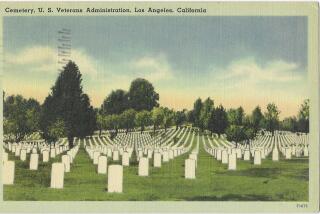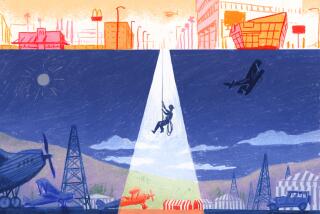Archeologist Has a Dig
- Share via
In regard to Denise Hamilton’s article (Times, Sept. 5) on the historic Encino Indian archeological site, my misgivings as indicated to her in July about talking to most reporters continue to be confirmed by the misinformation given about me in her article, this after more than an hour’s conversation and ending in print as two sentences.
To be specific, I was not “hired by Desautels” in any way to be involved in the Encino site, nor for that matter, in any of her past work at Encino. Because of my previous archeological investigations in the Encino area, I was simply invited early on (a year ago August) to look at the excavations being carried on, and so I went and spent an hour or so.
Also, the proper context for may being quoted that the Desautels report could be a “proper and adequate assessment” was on the basis of not having ever seen the CSUN archeologists’ report or other contradictory documentation alluded to in the previous paragraph, and so should not have the wrong implication as presented, i.e., that I had.
Incidentally, my interest in the Encino area extends back to 1952 when as a graduate student at UCLA I was contacted about the finding of Indian materials at a location just west of what is now the clubhouse of the Balboa Municipal Golf Course. It is interesting to note that the work on this site by myself as supervisor and a dozen or so others was on a purely volunteer basis to salvage information before the site would be destroyed without a trace, as many others had and were to be in the name of progress. At the time, it would have been an idiotic thought that money could ever be considered to be available from whatever source of that destruction.
Thus the 1,000-by-300-foot area was gradually obliterated by paring action on the south with drainage channel dredging; a housing tract being built on the western third; bulldozing for the clubhouse at the eastern quarter; a general leveling for fill in the golf course of the northern portion, and the final central elimination of the site by the cutting through of the Burbank Boulevard extension where it curves south and east from Balboa Boulevard. A report by me published in 1960 tells of the more than 400 flaked and ground stone tools recovered from this early-occupied site, dating between 5000 and 3000 BC, and consequently, not the historic site of Encino as I had hoped.
CHARLES ROZAIRE
Curator, anthropology section, Los Angeles County Museum of Natural History
More to Read
Sign up for Essential California
The most important California stories and recommendations in your inbox every morning.
You may occasionally receive promotional content from the Los Angeles Times.










